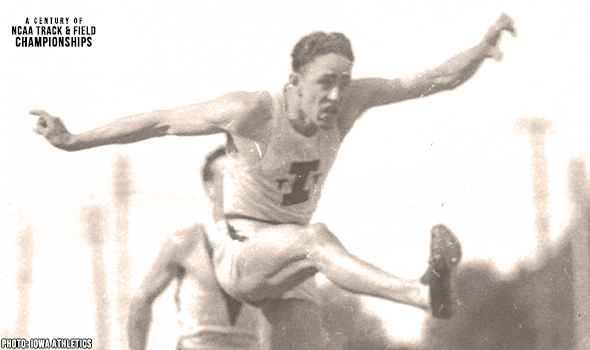
Brookins Hurdled To All-Time Marks
Charles Brookins of Iowa was one of the big stars in the 1923 NCAA Championships, the meet’s third edition held at Amos Alonzo Stagg Field in Chicago.
Brookins ran the world’s two fastest times in the 220-yard low hurdles as he was one of four athletes in the meet to repeat a victory from 1922, when as a sophomore he edged Notre Dame’s Gus Desch in a world record 24.2. Desch, who won the first NCAA 220 hurdles in 1921, had also earned Olympic bronze in the 1920 400-meter hurdles.
That neither of Brookins’ marks from the 1923 NCAA Championships – 23.9 in the heats, 23.6 in the final – was ratified as a world record shows just how much has changed in the sport in nearly 100 years.
It wasn’t just the event, but how it was contested – using the curve for the first portion of the race. The IAAF only ratified straightaway 200/220s (hurdles or sprint) until 1958, and that nearly coincided with when the 220 hurdles was being phased out of the NCAA meet (It was last held in 1959).
Brookins had in fact set ratified world records in the straightaway version – just two weeks earlier at the Big Ten (then known as the Western Conference) Championships he ran 23.2, a mark that would not be surpassed as a world record until 1935, when Jesse Owens ran 22.6 in his Day of Days, also at the Big Ten meet.
Brookins, a native of Des Moines, Iowa, who grew up about 30 miles away in Oskaloosa, won a third-straight Big Ten title in 1924, a year in which there was no NCAA meet so as not to conflict with the Olympic Trials.
He now needed a new event, though, as the 220 lows had long since been replaced on the Olympic schedule by the 400-meter hurdles – not just a longer distance but with hurdles at 36” inches instead of 30”.
Iowa suddenly became a haven for long hurdlers. Iowa coach George Bresnahan – a USTFCCCA Hall of Famer – set up a 400-meter hurdles race a couple weeks before the Trials, but the winner was Hawkeye teammate Chan Coulter, a quarter-miler who shocked in this event at 53.2 when the ratified world record was 54.0. F. Morgan Taylor from nearby Grinnell College was runner-up ahead of Brookins.
Those three made the U.S. team at the Olympic Trials, Brookins also bettering the world record in the heats and semis before losing in the final to Taylor at 52.6, with Brookins (an estimated 52.8) and Coulter following.
A month later at the Paris Olympics, Taylor earned gold while Brookins finished second but was not awarded any medal as he was disqualified for running out of his lane. Taylor’s time of 52.6 was not acceptable as a world record because he had knocked over a hurdle – a rule no longer in force.
Brookins retired from track after winning the 220 hurdles at the 1925 AAU nationals, but Taylor won the 1925 NCAA 220 hurdles and earned two more Olympic 400-meter hurdle berths, including 1932 when he was U.S. flag bearer for the opening ceremony.
The NCAA and collegiate track & field will mark a momentous milestone in the spring of 2021 -- the 100th anniversary of the NCAA Championships and with that, the NCAA Track & Field Championships. In June 1921, the University of Chicago hosted the first track & field championships in NCAA history.
This point can’t be emphasized enough: Not only was the event the first for NCAA track & field, but the first championships for any sport under the sponsorship of the NCAA.
To celebrate, over each of the next 365 days, the U.S. Track & Field and Cross Country Coaches Association (USTFCCCA) will celebrate moments, student-athletes, and coaches that have made a century’s worth of championships special. From humble beginnings to important historical milestones to the modern-day, collegiate track & field has evolved with the American society.
The 2021 edition of the NCAA Division I Outdoor Track & Field Championships begin with preliminary round action on May 27-29 in Jacksonville, Fla., and College Station, Texas. The championships final site and culmination of the celebration is slated for June 9-12, 2021 at the newly rebuilt Hayward Field in Eugene, Ore.
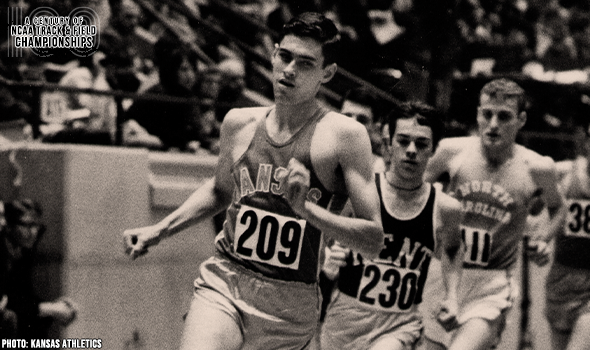
Ryun Raced To Only NCAA Outdoor Title In 1967
Jim Ryun won his only outdoor national title at the 1967 NCAA Outdoor Track & Field Championships with his victory in the mile!

Pihl Led BYU’s Decathlon Dominance In 1975
Raimo Pihl set a meet record in the decathlon at the 1975 NCAA Division I Outdoor Track & Field Championships and led a dominant BYU performance.

Groenendaal Flew To Back-to-Back NCAA MRs
Claudette Groenendaal set meet records in back-to-back years in different events at the NCAA Division I Outdoor Track & Field Championships!

Kerron Clement Had Record Speed
Kerron Clement set a world indoor record and a collegiate outdoor record at the NCAA Championships in 2005.
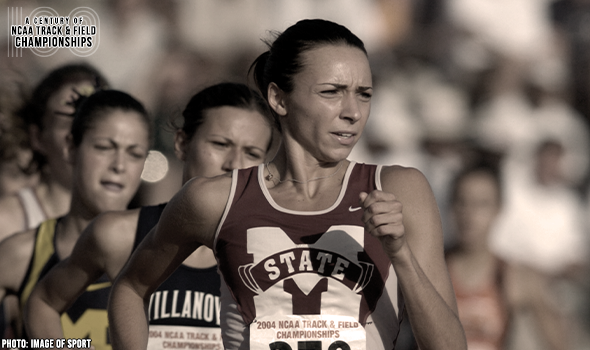
McWilliams Ran Into The 1500 Record Book
Tiffany McWilliams won back-to-back 1500-meter crowns at the NCAA Division I Outdoor Track & Field Championships, which included a three-second victory in 2003 where she set the collegiate record of 4:06.75.
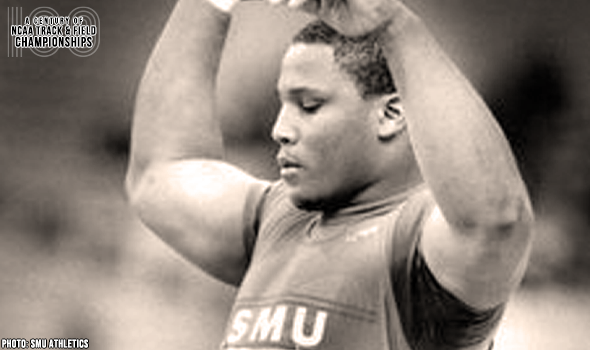
Carter’s Shot Put Prowess Was Legendary
Michael Carter, patriarch of the famed Carter family, won three shot put titles at the NCAA Division I Outdoor Track & Field Championships in his career!
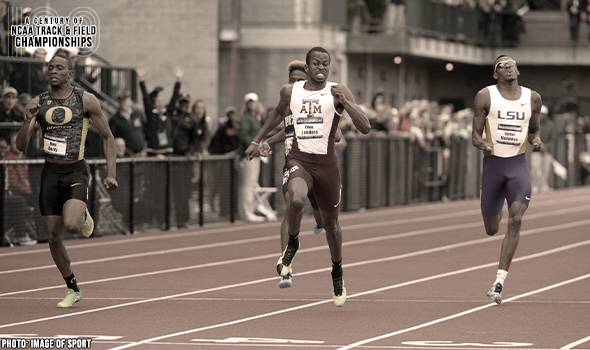
Lendore Capped Dream Year At NCAAs
Deon Lendore won the 400, clocked a 44.10 anchor leg on the winning 4×400 relay team and guided Texas A&M to a runner-up finish in the 4×100 relay at the 2014 NCAA Division I Outdoor Track & Field Championships.

Butler Starred With Three 3K Victories
Kathy Butler of Wisconsin won three consecutive 3000-meter titles at the NCAA Division I Outdoor Track & Field Championships from 1995 to 1997.
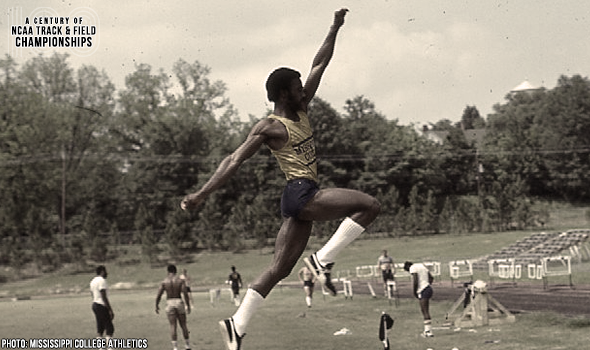
Myricks Starred Across Divisions At NCAAs
Larry Myricks of Mississippi College won two long jump titles at the NCAA Division I Outdoor Track & Field Championships in his career.

Thomas Rose To Occasion In The High Jump
Mazel Thomas won the high jump at the 1987 NCAA Division I Outdoor Track & Field Championships after finishing runner-up to a teammate at the NCAA DII meet two weeks earlier.

